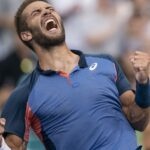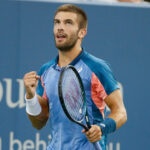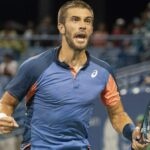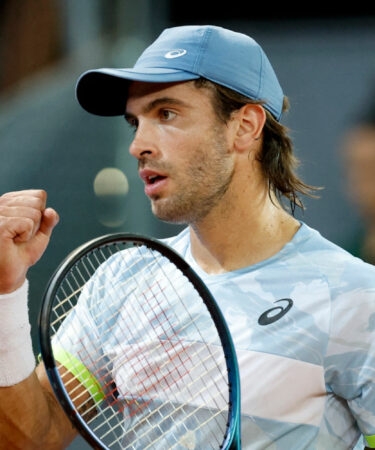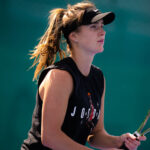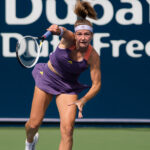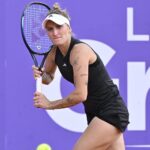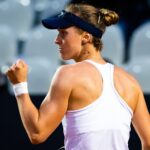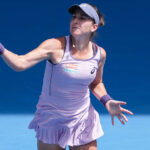In Borna’s words: Behind the scenes look into how Cincy title was crafted
Following his fairytale run in Cincinnati, Borna Coric spoke exclusively to Tennis Majors on what went on behind the scenes in the last six months which allowed him to capture the biggest title of his career
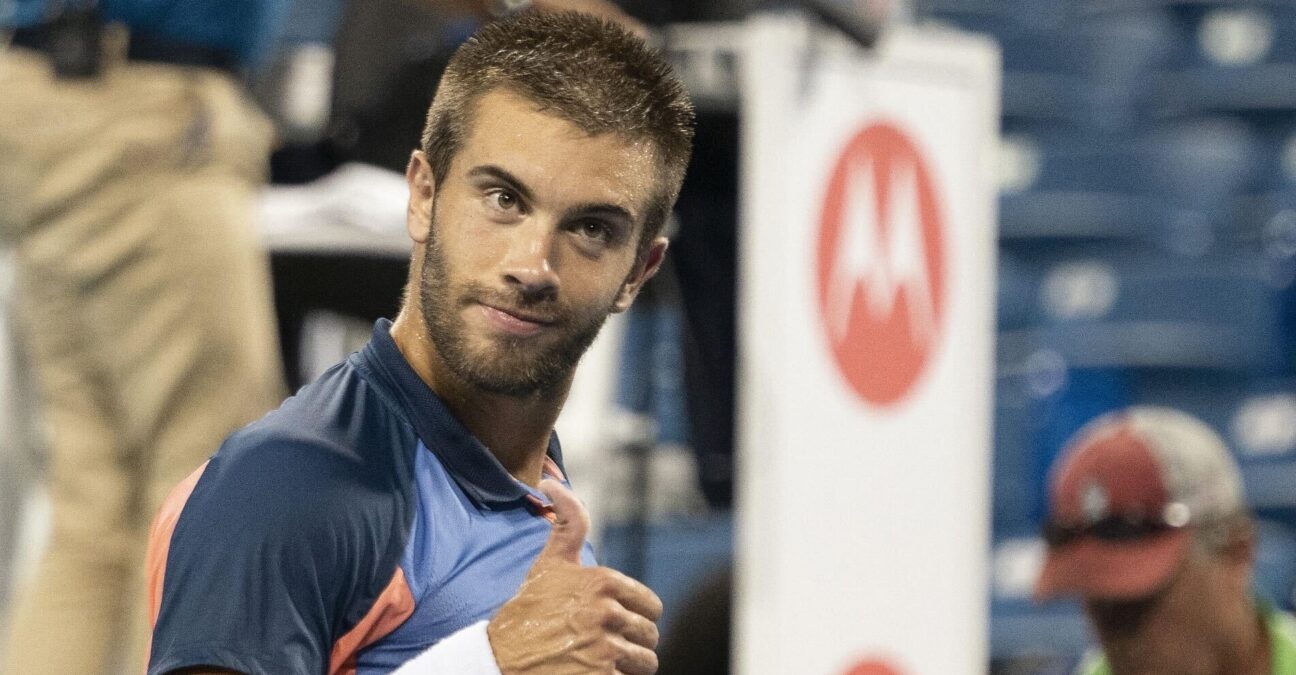 Borna Coric, Cincinnati 2022 – © AI / Reuters / Panoramic
Borna Coric, Cincinnati 2022 – © AI / Reuters / Panoramic
“A magical week for Coric!”, lots of headlines in the media stated following Croat’s victory at the Western & Southern Open. Looking at the names of his opponents – Musetti, Nadal, Bautista Agut, Auger-Aliassime, Norrie and Tsitsipas – one would assume that there had to have been some magic involved. It was not, however, magic, but plain old hard work, belief and experience.
In his interview with Tennis Majors, 25-year-old Coric spoke on his incredible week, his darkest moment in the past six moments, ways he was able to reinvent his serve, his maturity, forehand, expectations and much more.
Tennis Majors: Following the title, you said several times that you did not expect it to happen, that you cannot explain it completely etc. After a couple of good night's sleep, what would you say were the key factors for this incredible achievement?
Borna Coric: Yes, I have come to my senses a bit, the dust has settled and now I can say that I feel that all the hard work I have been putting in since the beginning of April has come to fruition.
I did come back in March, but I had to be careful in the beginning – my shoulder would flare up a bit after practice and I would have to take days off because of it, so there was no consistency in my work. As my shoulder was getting better, I started to practice harder and was able to exert myself more and more. These past four months I feel I have been the most focused on work and progress as I have in my whole life.
When you are top 30, you can maybe allow yourself to be a bit sloppy. You need one or two good tournaments, draws to open up a bit and you will be able to stay in the same spot, more or less. But when you fall down to number 200-250, like I did, you need to work three times as hard to get back.
Luckily, I was aware of that. I think that is the answer, and in Cincinnati everything came together.
Tennis Majors: Before we move on to more serious tennis topics, tell us what were the most creative messages you received following the title, you said there were a trillion!
Borna Coric: Haha, some of the funniest I cannot share with you guys, because there is too much in it, haha. What I was moved by the most is the sincerity of the messages. I received a lot more compared to the Davis Cup title or Shanghai finals, both from people who know me the best, but from those who do not know me that well too. I feel that people empathize with me because of everything I have been through in the last couple of years, and I got the impression that people were really glad to see me back.
When it comes to tennis I am not the most confident person
Borna Coric
Tennis Majors: During these last few months, did you ever doubt that you would be able to reach this level again?
Borna Coric: Yes, I did. Absolutely. When it comes to tennis I am not the most confident person, but I feel that it serves me well because it makes me work harder and to be more focused. There were times when my serve was going 185 km/h and I did not know why that was happening, because I used to serve 200-205 km/h. I knew that I would not be able to come back serving like that – yes, I have got a good return and baseline game, but when I serve the way I am supposed to, it is one of my greatest strengths. I knew that I cannot allow myself to serve like that, so yes, I did doubt.
Tennis Majors: Now that you are part of the top 30 again, could you reflect on what was your darkest moment in the last few months?
Borna Coric: First round of the Challenger in Forli, loss to Gastao Elias. I had just started to play better and I had beaten a good clay court player, Taberner, at Roland Garros. I did lose easily to Dimitrov in the next round, but I attributed it to lack of fitness. After Paris, I practiced extremely hard for ten days, only to then play an awful match in Forli – I had three match points and lost. I served terribly and felt really bad on the court. That was the toughest moment, for sure.
Tennis Majors: Two and a half months later, you are serving like never before in your career. There were some incredible serve statistics from this week such as 10 aces in two games against Bautista Agut or 31/32 points won on first serve versus Auger-Aliassime. How did it all come together?
Borna Coric: First of all, the number of repetitions. I have had troubles with my shoulder since I was 20 years old, so I did not have the sheer quantity of serves required throughout my career. I had to be careful not to worsen the state of my shoulder. I am careful now too, there is load management, but I do have a consistent number of serves I can put in weekly – not too much, not too little.
Apart from that, Mate (Delic, Coric’s coach) and I have watched a lot of videos of me serving and we realized that I had changed… I do not want to say my motion, but I had started to toss the ball too far behind. I did it unconsciously. During my recovery, for the first few months while I was serving at 20-30 percent, I found a contact point in which I felt less pain. Over time, I served too many times with the wrong motion. In Forli and in Perugia we realized that I had lost approximately 15 km/h on my serve. I worked with Mate a lot on that, so I toss the ball more forward now. Also, I used a lighter racquet, so I changed that – a heavier racquet allows me to serve bigger, faster.
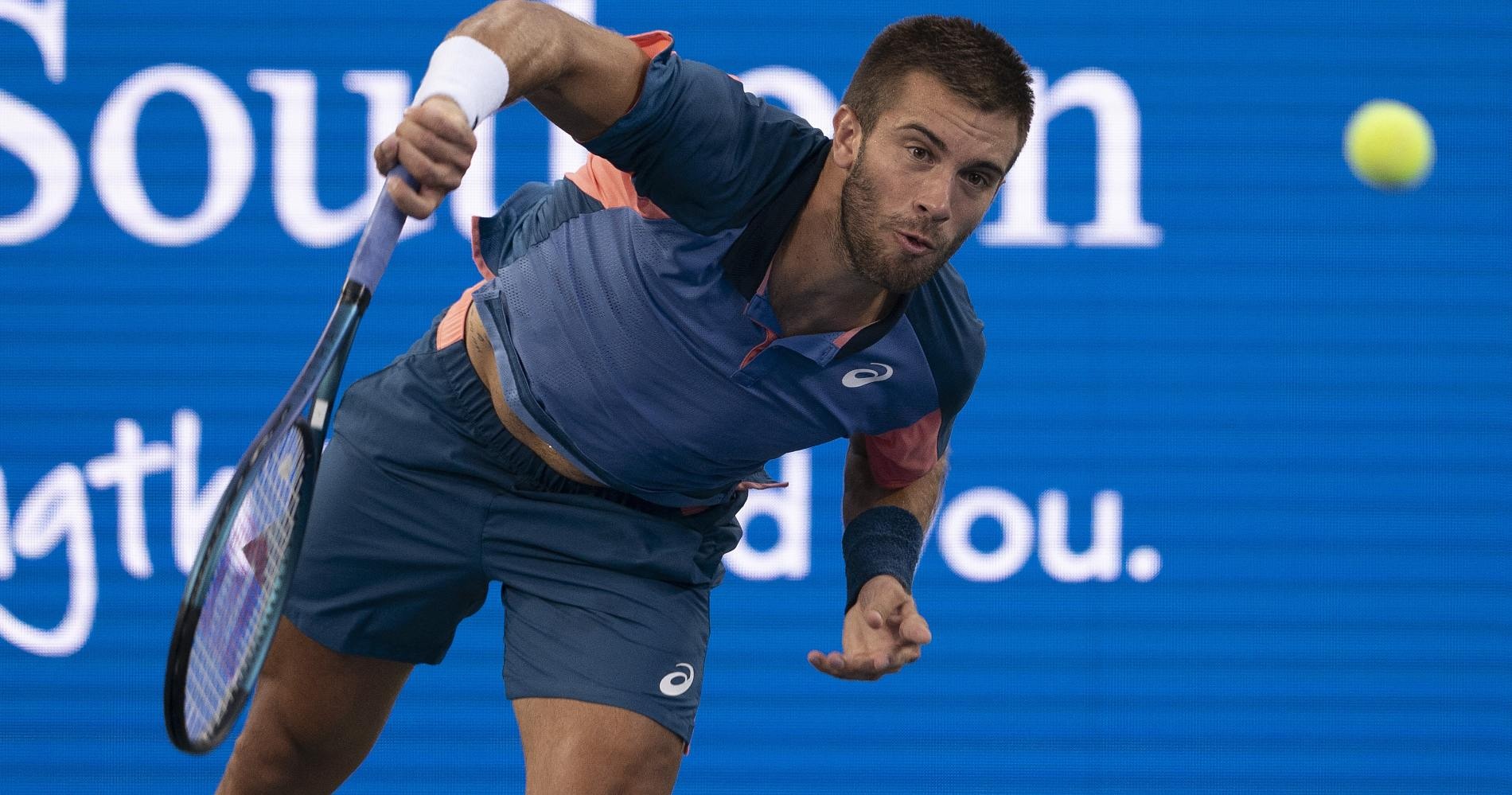
Tennis Majors: Usually, when we speak about your game style, we tell the story of your great movement, extraordinary backhand etc, but whether you are part of the elite or not mostly depends on your forehand. How would you analyze your forehand?
Borna Coric: I must say that I had troubles with my backhand on hard courts for a while as well, I made a lot of unforced errors. The way I see it is that my game revolves around my serve, backhand and movement. I need my forehand to be solid, not too prone to errors and I need to be able to finish off shorter balls with it, which is something I have struggled to do often.
But if my backhand is not good enough, then my forehand – which is my weaker shot for most of the time – is more exposed as well. It works the same way with my serve: if my second serve goes 155-160 km/h, then it is more difficult for my opponent to apply pressure on my forehand wing, compared to when I am serving 145 km/h.
Furthermore, there are times when I feel more comfortable hitting forehands than backhands, so I really do not know what to say. In Cincinnati I did feel the ball particularly well on my backhand, but there are times when I prefer my forehand wing. Over the years, I feel like I have made strides with my forehand – I hit it heavier and more aggressively.
Tennis Majors: Looking at the players you have defeated – Musetti, Nadal, Bautista Agut, Auger-Aliassime, Norrie and Tsitsipas – this title would have been a marvelous accomplishment even if you did not have the shoulder surgery and one-year hiatus. What are you most pleased with in your game?
Borna Coric: Definitely my serve. From the second set of the match versus Musetti until the semifinals, I served the best in my life. In the semifinals and finals my first serve percentage dropped a bit, there were not that many aces – it was humid, so the balls were slower too – but I served excellently in crucial moments. It is not always about percentage – what is 70% worth if you miss your first serve on every break point?
Mentally I did well too, but that was always my strength. Also, I did not make many errors with my forehand, I finished off shorter balls. With Tsitsipas in the finals, I was the one who was more aggressive, the one who kept applying the pressure and that would have been impossible had not my forehand been so good.
Tennis Majors: When we spoke back in March, you told me that after the surgery you have become more appreciative of your career and tennis. Apart from that, in what ways have you changed the most?
Borna Coric: I really feel that is the most important thing. I experienced what it was like to be out for a year and I realized how much tennis means to me, how much competing means to me, to be more precise – the victories, defeats, practices, the whole process. It can be tiresome at times, but when it is not there, you miss it badly.
Also, I have learned to appreciate the progress I make, particularly now when I see it – both tennis-wise and ranking-wise. I am fulfilled and happy when I see that something we have worked on for months has improved.
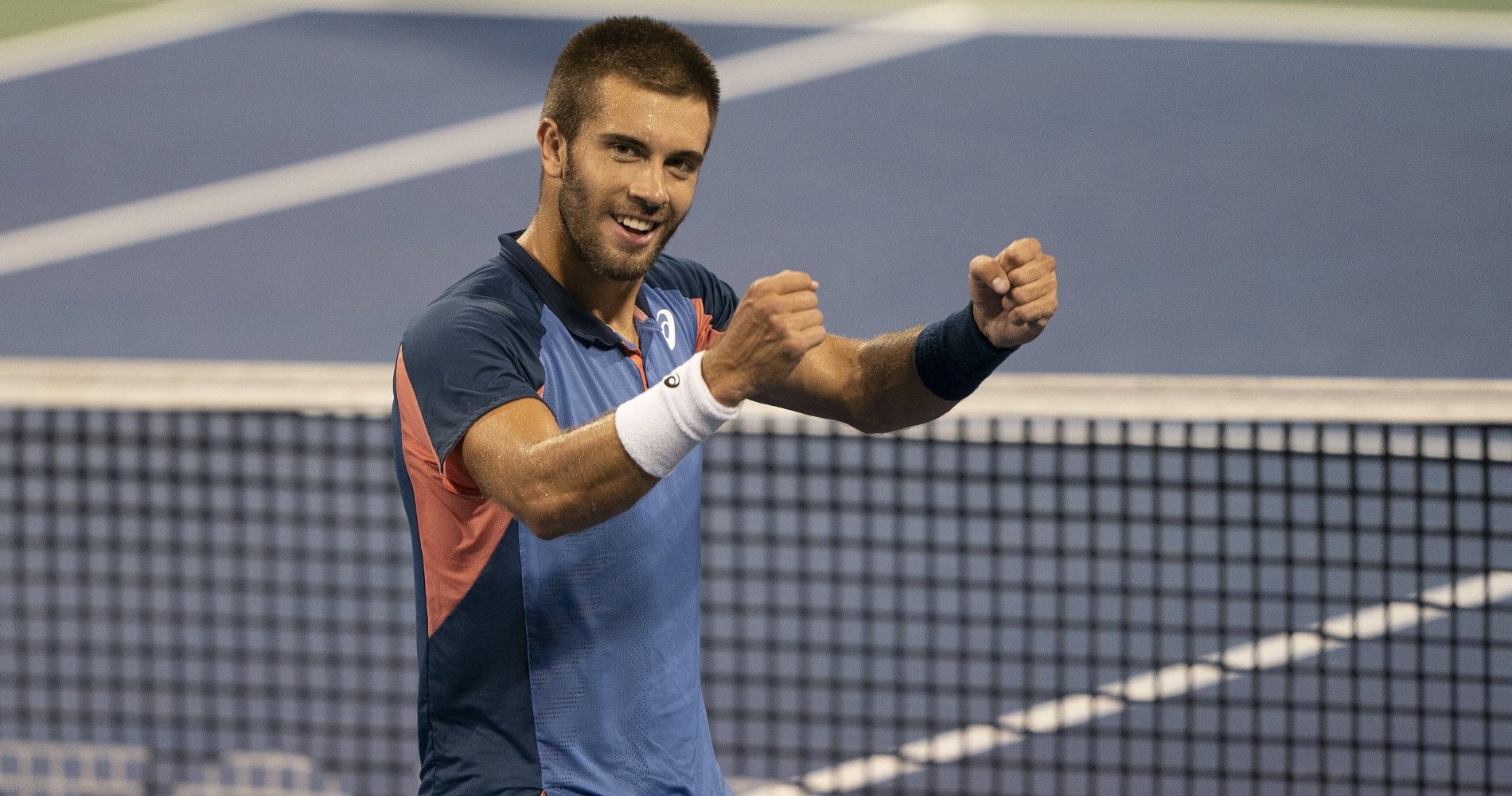
Mate Delic, one of the most important person in Coric’s team
Tennis Majors: We mentioned your coach Mate (Delic). What have been his biggest inputs now that you have worked together during competitions, during tournaments?
Borna Coric: The most important thing is that he is with me all the time. We joke that we spend 52 weeks a year together, he has had three or four days off, and that is it. Mate knows me very well, knows when to push me and when to back away, because we are friends above all and he has been a part of my team for five years.
With him, I have this consistent body of work that I did not use to have. I will give you an example of the way I used to plan: let’s say I finish the US Open on Thursday and I am scheduled to play in Zagreb the following Monday or Tuesday against a player that is maybe not so great. I would just hit for an hour, just to feel the ball and that would be it. But when you put together all the days like that during the season, you lose two months of quality work. With Mate, if my body is feeling good, the day after we land we go back at it full steam, working on aspects of the game that need improving. That sort of continuity has paid off.
Mate was the one who was first to tell me that my ball toss was too far back. It is ironic because before the surgery my ball toss was often too far in front of me. He said to me: “I know it is usually the other way around, but I think your toss is too far behind now. Let’s look at some videos to see what you think”. We watched it and we changed.
Also, there were some other technical details we worked on and we keep working on, because it is a process. For instance – sometimes I am too close to the ball with my body on the forehand, or sometimes my left arm “fires“ too early when I hit the forehand, so my shoulders open up and I lose control of the shot. Things like that. Another example – two years ago I was experiencing pain in my left wrist, so I did not use my left hand that much on my backhand, and we are working to restore that, because I feel my backhand was even better when I was younger.
Tennis Majors: Now that you are seeded, what are your expectations for the US Open?
Borna Coric: To be honest, I have none, because it happened many times in my career that I experienced a low after a big result. It is not that I became cocky, I was never the arrogant type, but simply put, expectations and wishes become way higher, then the bubble bursts and it does not turn out well. I do not like that feeling, so I am taking it one match at a time, although I know it sounds like a cliche. So, my goal is just to be healthy and to prepare well for New York.
Tennis Majors: Lastly, I would just like your comment on something you said in the press conference, how earlier in your career you would have probably celebrated the win over Nadal more, whereas now you were instantly focused on the next match. In which ways have you become more mature?
Borna Coric: I think it is a phase everyone goes through in their careers – you fly high after a big win, but then you fall, it always happens. Then you catch yourself going high up and way down. After the surgery, I have changed that – I want to go up, but slowly, without too many oscillations.
In tennis, a sport in which there is a tournament every week, that attitude is of utmost importance. If I lose in the first round two consecutive times, it is not the end of the world, I still know how to play tennis. On the other hand, the fact that I won in Cincinnati does not mean that I will play in the quarterfinals in New York. I can play some phenomenal players in the first round – Carreno Busta was not seeded when he won in Montreal, Kecmanovic for example won’t be seeded in New York and he is playing amazing.
Yes, I won a big title, I am very pleased and proud, but we move on. It does not mean much for the future, on the contrary, some players will probably be more eager to beat me now compared to two weeks ago.
